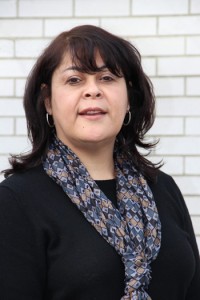UBC Faculty of Education researchers Jan Hare and graduate student Nicola Friedrich studied the role of family literacy programming for Indigenous children and families taking part in Canada’s national Aboriginal early intervention program, Aboriginal Head Start (AHS).
“This study suggests that for families from diverse cultural and linguistic communities, there are multiple pathways to learning,” says Hare, who is presenting this research at the American Educational Research Association (AERA) annual meeting in Vancouver. “Children become knowledge brokers, helping their parents navigate the expectations and norms within their families, schools and communities.”
“The residential school system disrupted the transmission of cultural knowledge and language from parent to child across the generations,” says Hare, an associate professor in the Department of Language and Literacy Education. “Today, many Aboriginal parents living in urban areas are dislocated from their culture, language and identity.”
The AHS program in Canada serves Aboriginal children and families in more than 130 urban and rural communities and nearly 350 First Nations communities.
AHS focuses on health promotion, social support, nutrition, family involvement, school readiness and culture and language. The program was developed as an early intervention strategy to address the learning and developmental needs of young children living in urban, rural and First Nations communities.
Hare, who studied the outcomes of eight AHS programs in central and western Canadian cities, found that children were sharing what they learned about culture and language from AHS with their parents.
“The transmission of knowledge from child to parent is significant,” says Hare. “It flips the mainstream model that family literacy programs tend to be based on, where parents teach children.”
